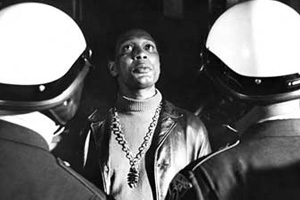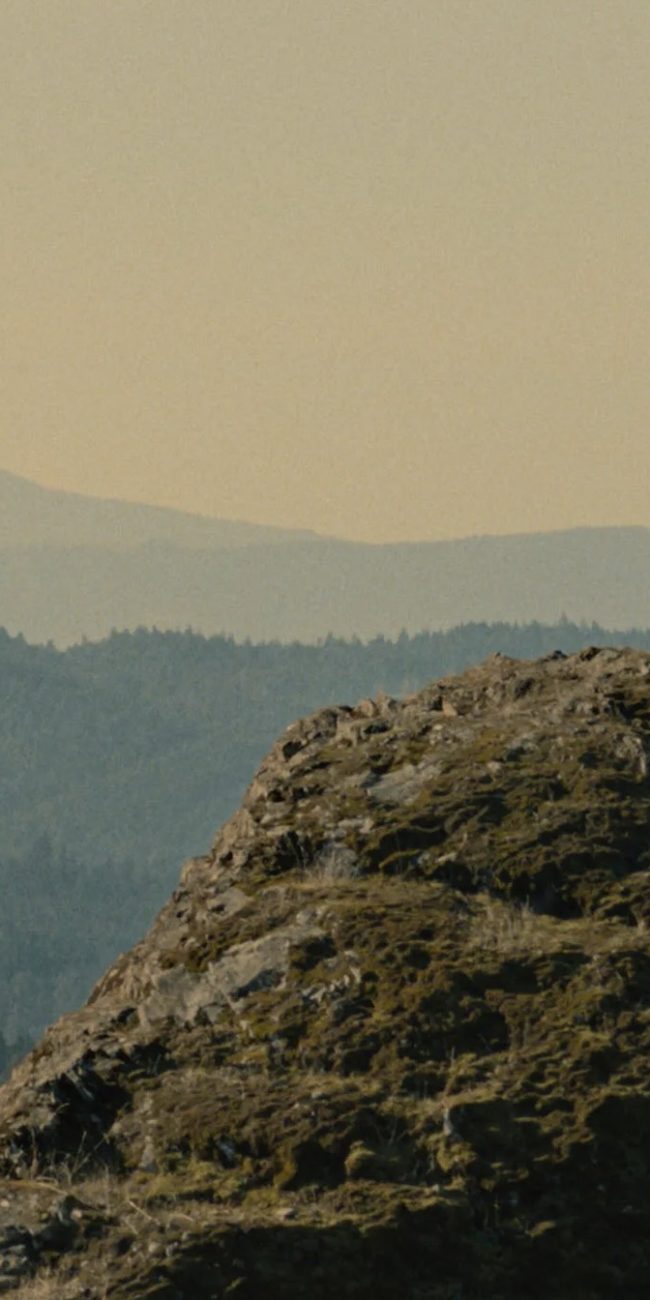And just like that, the game appears to be changing, as the once wholly loveable Netflix doesn’t seem to care just how quickly it’s about to fall out of favor with a group of passionate movie lovers such as ourselves. No, I’m not referring to the new pricing plan. In fact, my memory is that in the early days of Netflix, my tab landed at around 15 dollars each month for a subscription (for 3 discs out at a time, I seem to recall it being 19 dollars?). Back then, that number didn’t seem outrageous to me. To be honest, as a filmmaker, the shrinking monthly rate for streaming everywhere seems like a dangerous proposition, for it alerts me to the fact that films aren’t being accounted for on a stream-by-stream basis. Which, if one does some even basic mathematics, has the filmmaker coming up shorter than ever. But that’s for another article that someone far more informed than myself will hopefully write (this one certainly provides valuable insight).
It’s not the monthly fee that has me so disappointed. It’s that I didn’t just think Netflix used to be a big supporter of the little guys, I knew they were (this was based on statistical data relayed to me by distributor friends and associates). Yet not anymore. Rather than building and maintaining as comprehensive a library as possible and using their assets to their advantage, Netflix is instead abandoning this concept in favor of a more streamlined approach: i.e., concentrating predominantly on TELEVISION and BIG STUDIO PRODUCT. Obviously—you will get no argument from me here—this is where the real money exists, and it’s what has helped Netflix to become such a business juggernaut. But part of what made Netflix so special is that they were using their position of power to acquire smaller titles to the point where it seemed like that was part of their overriding mission. Perhaps this was never the case. Either way, reality has arrived.
We’ve never had any official partnership with Netflix. When we started up our ongoing “Netflix Hidden Gems” column, we did it out of appreciation for what they were doing. Who knows, maybe we’re jumping the gun here. But it sure doesn’t seem like it. The situation with Criterion provided the first chink in their armor, and now, it seems like the tower is beginning to crumble. For now, we are renaming this column “Hidden Gems” so that we can include other sites that provide services similar to Netflix but who are more interested in ambitious cinema than television. ***Let it be known that I personally realize that we should have been doing this all along, and for that I apologize.***
Soon, I am planning to post a trusted, as-comprehensive-as-possible guide to alert you to all the other exciting options that are out there, though this post is a good way to get that ball rolling. Though this Netflix development is a disappointing one, it certainly isn’t the end of the world. Hopefully, it will turn out to be the beginning of an even brighter home video future for all of us. As usual, only time will tell…
HIDDEN GEMS – SUMMER MEGAMIX
The New York Ripper (1982) — This is Lucio Fulci’s dazzilingly stylish, gruesomely gritty, and totally outlandish slasher flick. A killer is stalking the Big Apple, slicing up beautiful young women with sharp knives and broken bottles. The only clue? The killer quacks like a duck. As absurd as it is frightening, The New York Ripper is fueled by an existentialist drive that boils the essence of terror to its primal fears and desires. Plus, the on-location shooting is superb, including a late-night chase through the Hoyt-Schermerhorn subway station! (Cullen Gallagher)
NETFLIX: Stream
GREENCINE: Rent
FACETS: Rent
Up Tight! (1968) — Unavailable on DVD and effectively suppressed after its brief release, Up Tight!, a terse and melancholic 1968 thriller from Jules Dassin (Rififi) is suddenly available on Netflix Instant! An odd piece of socio-cultural history, it’s a Hollywood film which offers, despite its genre trappings, the most eloquent dramatization of the tensions that ultimately fractured the Civil Rights Movement. Dassin’s remake of John Ford’s The Informer—set amongst warring black nationals and liberal integrationists in the impoverished Hough district of Cleveland—is informed very much by its northeastern Ohio setting and the historical moment. Co-scripted by stars Julien Mayfield and Ruby Dee, the film features Mayfield as a doomed black nationalist ostracized for his drunkenness and ineptitude, who turns snitch for the cops. The great cinematographer Boris Kaufman makes Hough into a shadowy and nightmarish post-industrial wasteland, albeit one punctuated by illusive moments of beauty. (Brandon Harris)
NETFLIX: Stream
Paid in Full (2002) — Charles Stone III’s underrated gangster drama set in 1980s Harlem is genre filmmaking of a high order: what in lesser hands would come across as a retread of clichés instead takes on a nearly classical grandeur. Even the most inventive contemporary crime movies, like the work of Tarantino and the Coens, sometimes seem to be taking place in a world disconnected from recognizable social reality. Stone, in his first feature film (he went on to make the crowd-pleaser Drumline), yanks the genre out of its closed loop of ever-more-baroque film-geek flourishes, and jolts it full of life. Paid in Full restores a sense of tragic consequence to its heroes’ downfall, and many viewers will be left shaken and appalled as the film arcs its way to its conclusion. Most mainstream reviewers ignored the film upon its release, and its distributor, Miramax/Dimension, treated it as just another disposable ‘hood shoot-’em-up. But people will go on rediscovering it on video and talking about it for years to come. (Read Nelson Kim’s full review here.)
NETFLIX: Stream/Rent
HULU PLUS: Stream
Dominick Dunne: After the Party (2008) — Dominick Dunne said things so other people didn’t have to. His lauded Vanity Fair articles show his commitment to revealing the ugliness in power, the unspoken lies of Hollywood. In After the Party directors Kristy de Garis and Timothy Jolley show an aged, sage Dunne looking back on his life, one that could stand in for the post-war American journey. Chronicling the Phil Spector trial while recounting stories with Hollywood legends, Dunne shows us the thin line between celebrity and tragedy. (Jesse Klein)
NETFLIX: Stream
GREENCINE: Rent
HULU: Free Stream!
AMAZON INSTANT: Stream
ITUNES: Rent
Rockers (1978) — The perfect summer jam. Greek director Ted Bafaloukos spent two years in Jamaica “casting” the reggae musicians who largely play themselves in his sunny, rasta version of The Bicycle Thief. The plot is thin, but who cares? The search for a stolen motorbike is a reason to follow drummer Leroy “Horsemouth” Wallace around his Jamaica, a 1970s haze of color, smoke, style, and beats. Horsemouth and his Dreads are tricksters, carried by hustle, quick wit, and only occasional violence. Mostly they goof, run records, and brush off their women, inspiring generations of rolling stones with the idea that home is just a place to change your shirt. The slang is so thick you need subtitles, but the music (Jacob Miller, Burning Spear, Gregory Isaacs) is loud and clear. (Susanna Locascio)
NETFLIX: Stream/Rent
GREENCINE: Rent
FACETS: Rent
ITUNES: Rent
Gone With The Wind (1939) — If you didn’t get the weekend beach invite and can’t bear the sight of Prospect or McCarren park on another Saturday, than call whomever you know with a hearty AC unit and a decent couch* and make a day of watching Gone With the Wind, a recent addition to Netflix Instant. Since the film is roughly four hours long, if you plan it right you can miss the hottest part of the day, especially if you bookend the film with meals and/or drinks. *Or use Rhett and Scarlet’s amorous banter to take you and your summer fling to the next level in a comfy bed. (Alexandra Roxo)
NETFLIX: Stream/Rent
GREENCINE: Rent
FACETS: Rent
AMAZON INSTANT: Stream
ITUNES: Rent
The Man In The Net (1959) – This is one of those bizarre films that got made in the bustling studio heyday that makes you ask “what the hell were they thinking?” It stars Alan Ladd as an introspective NYC painter who has retired to the country to pursue his artistic dreams. He spends his days in the fields painting happy country children at play while his younger city slicker wife, Carolyn Jones (Morticia on the original Addams Family), hits the bottle hard and flirts with the square-jawed local cop. The first few scenes have the couple battling it out like Who’s Afraid of Virginia Woolf?, except Ladd’s tight-lipped steady eddy calm demeanor is like Liz Taylor facing off against a Richard Burton loaded up on Prozac. That spins off into a murder mystery when he returns from a trip to the city to find the raving wife gone and his paintings all slashed to shreds. Then those children of the fields become key players in Ladd’s plot to save himself and find his wife’s true killer. The kids are those types of overly emotive ‘50s era stage kids that come off as super-creepy-too-perfect and director Michael Curtiz (Casablanca) dotes on them a bit too much. A truly strange off kilter film that may have been motivated by writer Reginald Roses’ (12 Angry Men) interest in larger issues like those surrounding the themes of class, race and art versus commerce, but in the end boils down to an overwrought freaky hybrid where the NYC stage meets a whodunnit in a low-budget Children of the Damned. (Mike S. Ryan)
NETFLIX: Stream
Mamachas del Ring (2009) — Set in the surreal and spectacular world of cholita wrestling, in which indigenous Bolivian women fight each other WWF-style dressed in traditional petticoats and bowler hats, Betty M. Park’s doc follows Carmen Rosa la Campeona, a force of nature and the sport’s biggest star, as she fights back against godfather-like impresario Don Juan Mamani, organizing her own tour after he kicks her out of his league. Park goes deep into Carmen Rosa’s troubled psyche, as she stands up to the apathy and betrayals of her comrades—and mounting pressure from her family to give up her passion for wrestling. (Paul Sbrizzi)
Trouble the Water (2008) — In the aftermath of Hurricane Katrina, co-directors Tia Lessin and Carl Deal went to New Orleans to make a film about U.S. forces returning from Iraq to their new deployment in an underwater city. What they found instead—or what found them—was Katrina survivor Kimberly Rivers Roberts, a self-proclaimed “street hustler” and rapper looking to broadcast the footage she shot during the storm. “This needs to be worldwide,” she told the filmmakers. “Ain’t nobody got what I got.” That sense of urgency pervades all of the footage she shot during the hurricane. The result is Trouble The Water, a riveting documentary comprised of Roberts’ footage, broadcast material, and 16mm shot by Lessin and Deal. (Daniel Scott)
NETFLIX: Streaming/Rental
GREENCINE: Rent
FACETS: Rent
David Holzman’s Diary (1967) — Recently at Fandor‘s Keyframe blog, I wrote an essay about my own personal connection to Jim McBride’s seminal debut feature. This is the opening excerpt: “Like most folks who weren’t raised in cinematically enlightened environments, I discovered Jim McBride’s David Holzman’s Diary while in film school (this was the early 1990s). It really spun me. McBride’s concept was so smartly executed that even though I knew it was a work of fiction and understood that my teacher’s main purpose in presenting it to us was to spark a discussion about the film’s fiction/nonfiction ethics, I couldn’t get past my visceral reaction of wondering what could possibly make this David Holzman guy think that pointing the camera at himself and filming his own boring life was an even somewhat good idea. Having just revisited it for the first time since then, 15 or so years later, David Holzman’s Diary has revealed itself to be an even more indelible work.” Read the rest of it here. (Michael Tully)
FANDOR: Stream
GREENCINE: Rent (available August 16, 2011)














